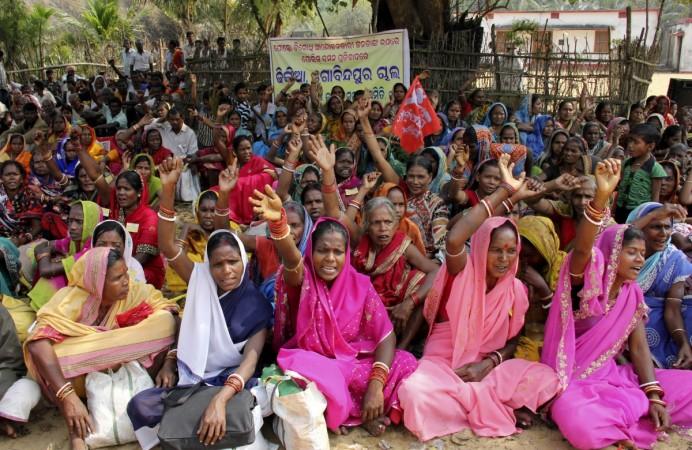
Conflicts around land acquisition threaten over Rs. 12 trillion (US $179 billion) worth of investments in India, a new report suggests.
According to the report prepared by the Rights and Resources Initiative (RRI), a global coalition of non-profit organisations, and the Tata Institute of Social Sciences (TISS), 3.2 million people are directly affected by land-related conflicts. The report arrived at these figures after analysing 289 ongoing cases — an estimated 25-40% of active and substantive land conflicts in the country.
The second report titled 'Land Disputes and Stalled Investments in India, which was authored by the RRI and the Indian School of Business (ISB), found that 5,780 (14%) of the more than 40,000 projects announced between January 2000 and October 2016 were stalled due to land acquisition conflicts.
The report also predicts more likelihood of a particular type of project being stalled. To this effect, it concluded that power followed by cement, steel and mining sector projects are most likely to be stalled. It highlighted that almost 80% of land conflicts arise out of development and industrialisation processes with infrastructure being the single-largest cause.
"While less than 15% of the country's districts are affected by Left Wing Extremism (Naxalite-Maoist insurgency), they comprise 26% of all ongoing land conflicts and 32% of land-conflict-affected population," the report said while adding that the perceived environmental impacts of these investments projects is the major cause for land disputes.
For instance, land conflicts stalled projects like Vedanta's bauxite mining project in Odisha's Niyamgiri Hills and Posco's $12 billion Odisha steel project.
In the case of private land, perceptions of unfair or low compensation were found to drive many of the land disputes.
"If investors are looking at their bottom line, the cost of delays and stalled investments often far outweighs the cost of paying farmers and land owners a fair compensation for their land. Investors, financial institutions and regulators must incorporate land tenure risks, including those arising from common lands, in their project and investment risk analysis portfolios — if they don't, they risk losing big," said Arvind Khare, board chair of the International Land and Forest Tenure Facility.
The report concludes that implementation of the Forest Rights Act (FRA) and the Panchayati Raj Extension to Scheduled Areas (PESA), which has been slow or in many cases being obstructed, needs to be strengthened to recognise the rights and transform the livelihoods of the dispossessed.
"Land conflicts are impacting communities across the country, threatening their lives and livelihood...At the same time that they impact development and infrastructure projects, a part of the solution to many of these conflicts already exists in the statutes the Forest Rights Act (FRA) and the Panchayati Raj Extension to Scheduled Areas (PESA). The only way to ensure India's continued development will be to effectively implement these laws and remove the anomalies in property rights regimes." said Dr Geetanjoy Sahu, a professor at TISS and one of the authors of the report.








